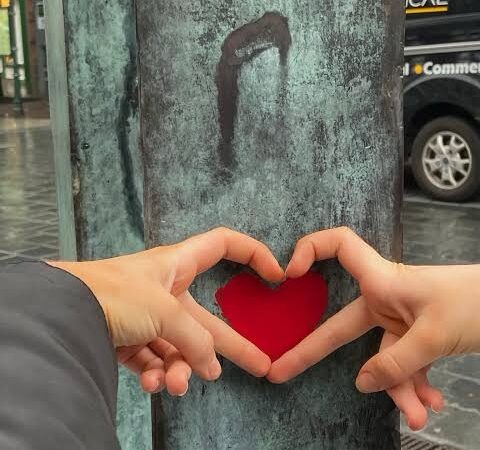
Rejection is a natural and inevitable part of dating, but how you handle it can make a world of difference in maintaining your confidence, dignity, and emotional well-being. Whether it’s a romantic interest not feeling the same way about you, or a date that doesn’t lead to a second one, learning to handle rejection gracefully is an essential life skill.
Handling rejection with grace doesn’t mean pretending you’re unaffected, but it does involve accepting the situation with maturity, keeping your emotions in check, and learning from the experience. Here’s how you can manage rejection in dating in a way that allows you to move forward with confidence and maintain your self-respect.
1. Acknowledge Your Feelings
It’s perfectly normal to feel disappointed, frustrated, or even sad after facing rejection. Denying your emotions or pretending that you’re “fine” can actually prolong the emotional process. Instead, take a moment to acknowledge how you feel.
• How to Do It: Allow yourself to feel upset, but avoid staying in that place for too long. Give yourself permission to feel hurt, but recognize that these emotions are temporary. Journaling or talking to a trusted friend can help you process and move through your feelings.
2. Don’t Take It Personally
Rejection, especially in the world of dating, is often not a reflection of your worth as a person. People have different preferences, desires, and life circumstances that influence their decisions. Just because someone isn’t interested in pursuing a relationship doesn’t mean you’re not lovable, attractive, or valuable.
• How to Do It: Remind yourself that the rejection is about compatibility, not your personal value. Often, it’s about timing, chemistry, or the other person’s own journey, which are all factors outside of your control. Reflect on the idea that sometimes, a “no” opens the door for a better connection down the line.
3. Maintain Your Dignity and Respect
It’s tempting to react defensively or seek closure when you’re rejected, but handling it with respect and grace will leave you feeling more empowered in the long run. Don’t engage in negative behavior like arguing, trying to change their mind, or expressing resentment.
• How to Do It: If you’re rejected via a text or in-person, thank the person for being honest, and respond with grace. Something like, “I understand, and I appreciate you being upfront with me. I wish you the best” can show maturity and leave the interaction on a positive note. This keeps you feeling dignified and can leave the door open for future interactions without animosity.
4. Avoid Self-Blame
It’s easy to fall into the trap of thinking, “If only I had done this differently” or “Maybe I wasn’t attractive enough.” However, rejection is not a reflection of who you are as a person. It’s important to avoid excessive self-blame, as this only contributes to negative self-talk and erodes your self-esteem.
• How to Do It: Instead of blaming yourself, focus on what you’ve learned from the experience. Maybe you discovered that a certain type of relationship dynamic isn’t for you, or perhaps you realized that you want something more aligned with your values. Rejection is an opportunity for growth and greater self-awareness.
5. Give Yourself Space
After a rejection, you may feel tempted to reach out or keep in contact with the person, especially if you didn’t get a clear explanation. However, giving yourself and the other person space can help you gain perspective and heal. It also prevents you from inadvertently damaging the potential for future friendship or connection.
• How to Do It: If the rejection was clear, avoid sending follow-up messages or attempting to reconnect immediately. Take time to focus on yourself, engage in hobbies, and spend time with supportive friends. Rebounding too quickly can prevent you from truly processing the rejection and learning from it.
6. Stay Positive About Future Possibilities
It’s easy to feel discouraged after a rejection, but it’s important to remember that dating is a process, and not every connection will be the right one. One “no” brings you one step closer to the right person, and each experience is an opportunity to learn and refine what you’re looking for in a partner.
• How to Do It: Keep a positive mindset by reminding yourself that dating is about finding the right match, and sometimes that takes time. View rejection as a natural part of the journey, not as a setback. The right person will come along, and each interaction helps you get closer to finding that person.
7. Learn From the Experience
Every rejection is an opportunity for self-reflection and growth. After giving yourself some time to heal, consider what you can learn from the experience. Was there anything in the way you communicated or acted that could be improved? Or perhaps you learned something about the kind of person you’re looking for in a partner.
• How to Do It: Be honest with yourself about what worked and what didn’t. Did you rush things too quickly? Did you overinvest emotionally before getting to know the person? Assess the situation with a growth mindset, and use that insight to approach future dating experiences more intentionally.
8. Remember, It’s Not About You, It’s About Compatibility
Ultimately, rejection in dating often comes down to compatibility, not personal shortcomings. Just because a connection didn’t work out doesn’t mean there’s something wrong with you. Relationships thrive on mutual respect, attraction, and shared values, and sometimes, two people simply don’t align in those areas.
• How to Do It: Focus on what you bring to the table in a relationship, and remember that finding the right fit takes time. Celebrate your positive traits and qualities, and trust that the right person will appreciate you for who you are.
9. Avoid Dwelling on “What Ifs”
It’s easy to get caught up in the “what ifs” after rejection, replaying scenarios and imagining how things could have gone differently. However, dwelling on these thoughts only prolongs the pain and prevents you from moving forward.
• How to Do It: Instead of focusing on hypothetical scenarios, focus on the present moment. What can you do today to feel better? Engage in activities that bring you joy and fulfillment. Keeping your mind busy and your focus on the here and now can help you move past the rejection with less emotional residue.
10. Practice Self-Care and Self-Compassion
Finally, after a rejection, it’s essential to practice self-care and show yourself compassion. Dating can be emotionally taxing, and it’s important to replenish your energy and confidence. Treat yourself with kindness, and make sure you’re nurturing your mental and emotional well-being.
• How to Do It: Take care of yourself by engaging in activities that make you feel good. Whether it’s exercising, spending time with loved ones, indulging in a favorite hobby, or simply resting, prioritize your well-being. Treat yourself with the same care and understanding that you would offer a friend who’s going through a similar experience.
Conclusion
Handling rejection gracefully in dating isn’t about suppressing your emotions or pretending that it doesn’t hurt. It’s about accepting rejection as a normal part of the dating process and using it as an opportunity for growth. By acknowledging your feelings, maintaining your dignity, and viewing rejection as a learning experience, you can navigate the ups and downs of dating with confidence and resilience. Remember, the right person is out there, and each experience brings you one step closer to finding a meaningful, lasting connection.
Tags:
Subscribe To Get Update Latest Blog Post
No Credit Card Required



